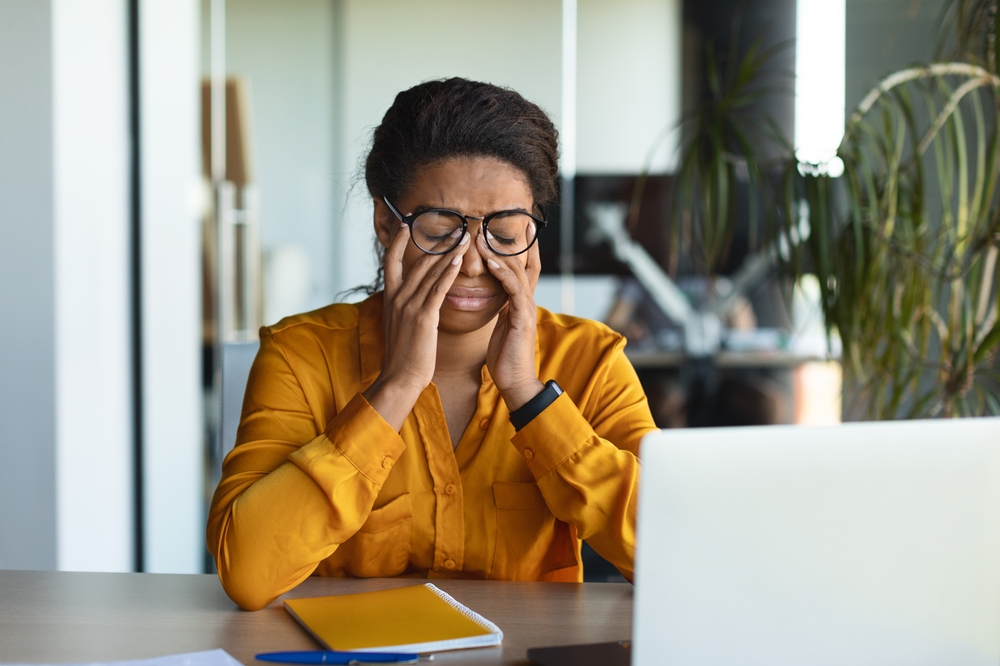
Dry eye syndrome is more than just occasional discomfort—it’s a chronic condition that can worsen over time if left untreated. As the seasons change, factors like dry indoor heating, and colder outdoor air can make symptoms more severe. Many people try to manage dry eye with over-the-counter drops, but persistent irritation, blurred vision, and eye fatigue may indicate an underlying issue that requires professional care. Understanding the causes of dry eye and recognizing when to seek medical attention can help prevent long-term damage and improve your eye health.
What Causes Dry Eye?
One of the most common underlying causes of dry eye is Meibomian Gland Dysfunction (MGD). The meibomian glands, located along the edges of the eyelids, are responsible for producing the oily layer of tears that prevents tear evaporation. When these glands become blocked or do not function properly, it can lead to increased dryness, irritation, and inflammation.
Other causes of dry eye include:
Aging – Tear production naturally declines with age.
Environmental factors – Wind, smoke, and dry air can worsen symptoms.
Prolonged screen use – Reduced blinking while using digital devices can contribute to dry eyes.
Contact lenses – Extended wear can lead to tear film instability.
Certain medications – Antihistamines, decongestants, and some antidepressants may reduce tear production.
Autoimmune diseases – Conditions like Sjögren’s syndrome can affect tear gland function.
When to See an Eye Doctor for Dry Eye
If you notice that your dry eye symptoms are becoming more frequent, intense, or disruptive to daily activities, it may be time to see an ophthalmologist. Warning signs that indicate your condition may be worsening include:
Persistent Redness and Irritation – Chronic eye redness and a gritty sensation may indicate inflammation or worsening dryness.
Blurred Vision – If your vision fluctuates or becomes consistently blurry, it could mean that your tear film is not providing adequate protection.
Increased Light Sensitivity – Sensitivity to bright lights, both indoors and outdoors, can be a sign of an unstable tear film.
Excessive Tearing – Paradoxically, dry eyes can cause an overproduction of reflex tears, leading to watery eyes.
Eye Pain or Burning Sensation – A burning or stinging feeling that does not improve with artificial tears may indicate the need for a more advanced treatment approach.
Difficulty Wearing Contact Lenses – If your lenses become increasingly uncomfortable, your dry eye condition may require medical intervention.
Personalized Treatment Options for Dry Eye
An ophthalmologist can provide a tailored treatment plan based on the severity and underlying cause of your dry eye. Since dry eye syndrome can result from various factors, a personalized approach ensures the most effective relief and long-term management.
One common treatment option is prescription eye drops and medications. Anti-inflammatory drops can help increase tear production and reduce inflammation, addressing the root cause of chronic dryness.
Nutritional supplements can play a role in improving tear quality. Omega-3 fatty acids, commonly found in fish oil and flaxseed, have been shown to support healthy tear production and reduce inflammation associated with dry eye. Incorporating these supplements into a daily routine can complement other treatments and enhance overall eye health.
For patients experiencing significant tear evaporation, punctal plugs may be recommended. These tiny devices are inserted into the tear ducts to slow tear drainage, allowing the eyes to retain moisture for a longer period. This can provide substantial relief for those with moderate to severe dry eye.
Schedule Your Dry Eye Evaluation Today
Ignoring worsening dry eye symptoms can lead to chronic discomfort and even long-term damage to the ocular surface. If you are experiencing persistent irritation, blurred vision, or discomfort despite using artificial tears, it is time to consult an ophthalmologist. With the right diagnosis and a personalized treatment plan, you can find relief and prevent further complications.
If you’ve noticed worsening dry eye symptoms, schedule a consultation with Tampa Bay Eye to explore the best treatment options for your needs. Visit our office in Lutz, Florida, or call (813) 550-2020 to book an appointment today.
Book a Consultation



